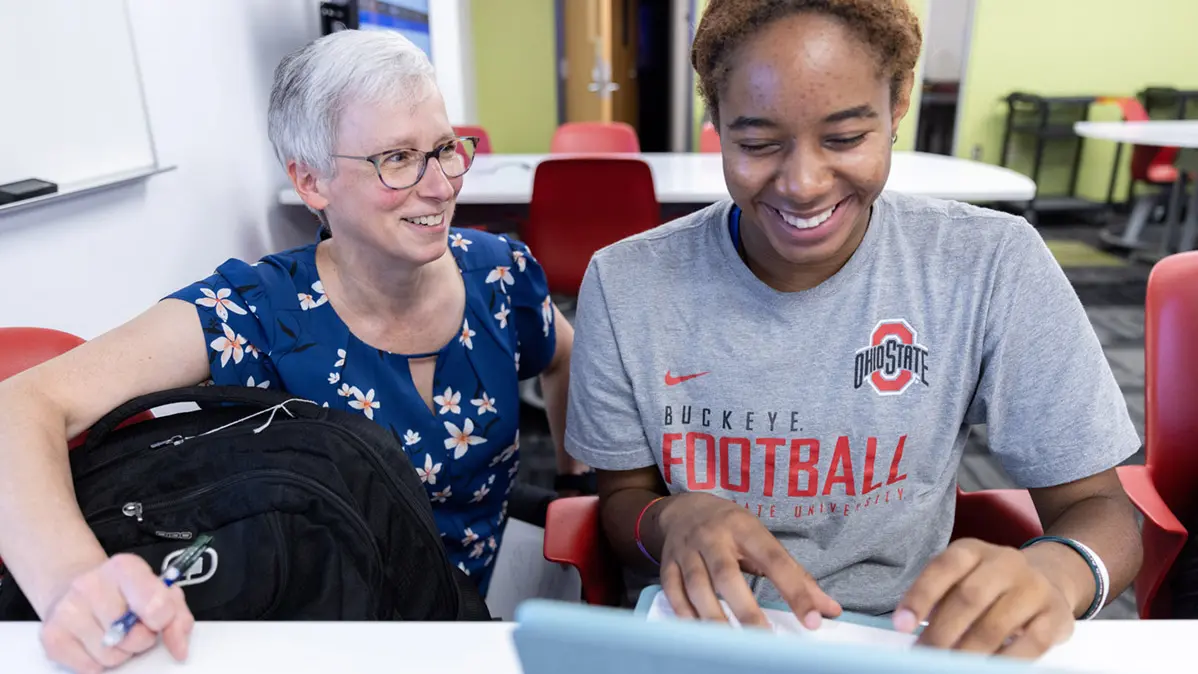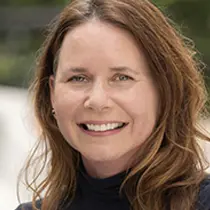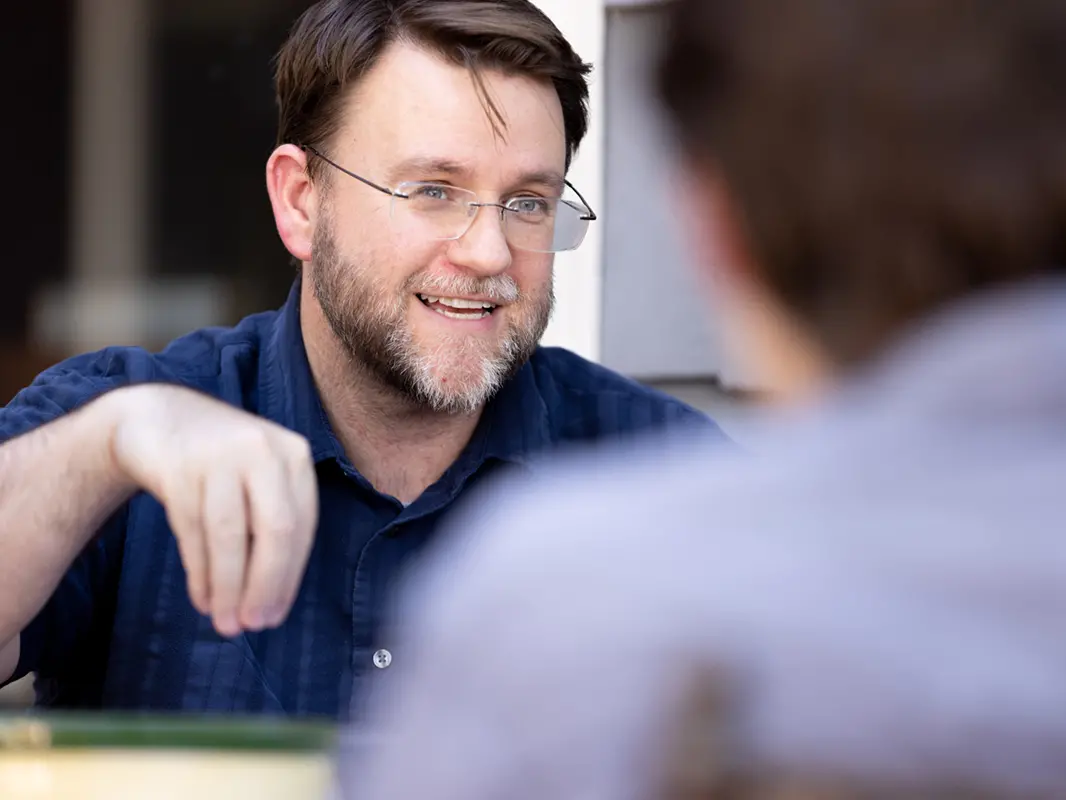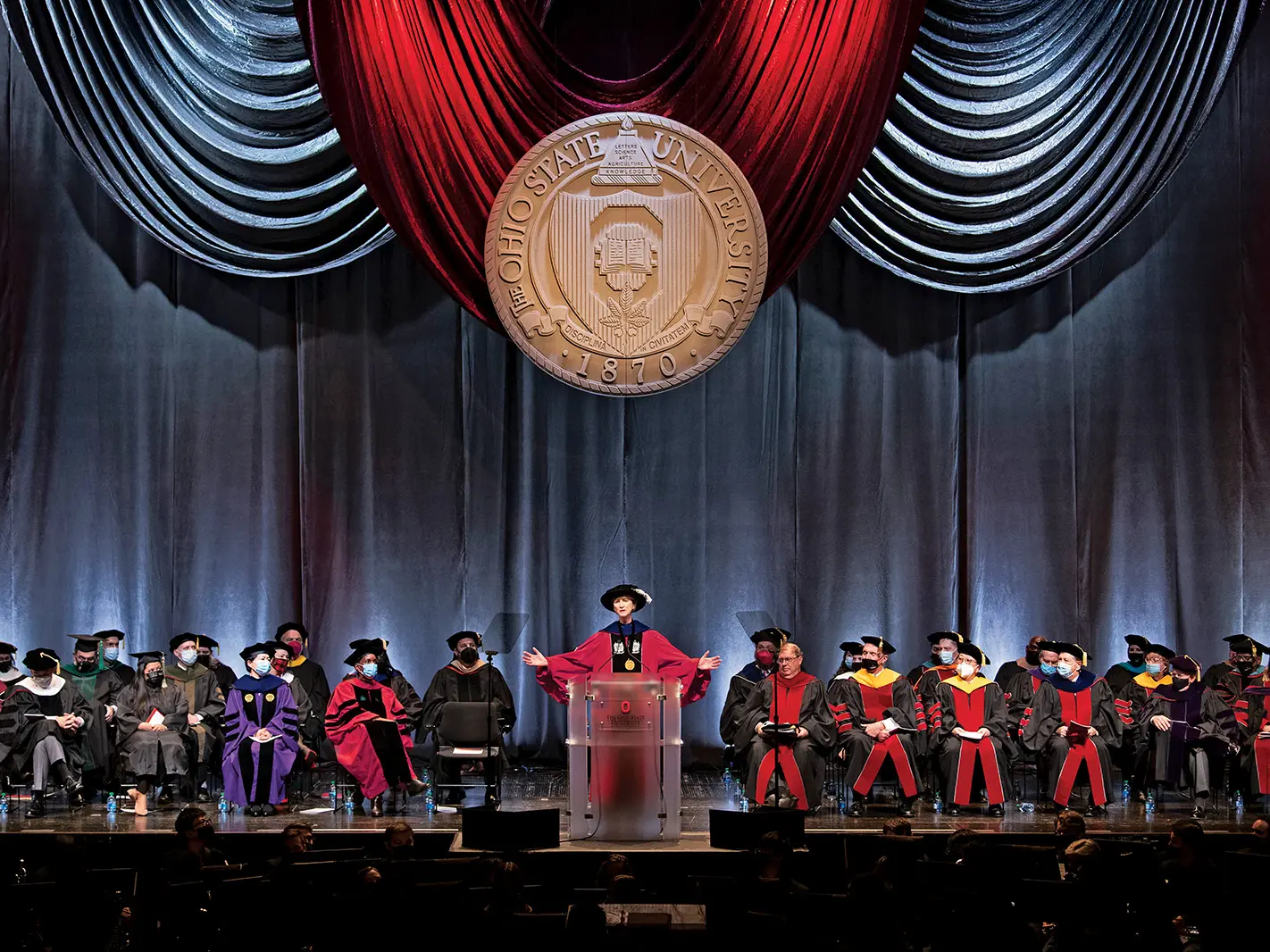New generation, new approach to General Education
After the first major changes in 30 years, the program of classes every undergraduate student must take will offer more flexibility and more real-life value.

Engagement Librarian Beth Black works with student Zaria Ragler in a General Education Launch Seminar. (Photo by Jodi Miller)
Kate Greer ’20 works as a paralegal in Berlin, Germany, so trust her when she says students need to be open to new ideas and cultures to be employable in the 21st century.
“So many students never interact with people of different backgrounds or critically consider the world around them until they arrive at college,” says Greer, who majored both in history and German.
Providing that kind of exposure looms large in Ohio State’s new General Education (GE) program, which has undergone a major update for the first time in 30 years.
“It provides all students — regardless of major — with the opportunity to explore other disciplines and ways of thinking, and to become a more educated citizen overall,” Greer says of the new GE program, which gives students a solid foundation for additional coursework. Greer represented undergraduates on the review committee during the five-year creation process.
One key change: Fewer required GE credit hours give students more power to pursue electives, minors, second majors, education abroad and service learning — and to graduate on time.
“Our new General Education will serve as a bedrock of undergraduate education that inspires new and critical thinking and opens pathways for students to have an enriching and outstanding academic experience at Ohio State.”
At the start of the GE revamp process, the University-Level Advisory Committee for the General Education (ULAC-GE) concluded that changes to the program were needed because so many of today’s students arrive on campus better prepared for the college experience. Still, the program has “proper preparation and support built into every step, making all the difference between success and an uncompleted degree,” says Meg Daly, associate dean for undergraduate education and chair of ULAC-GE.
“[The program] offers a broad-based general education and then builds upon that foundation with more advanced coursework that complements a student’s major or allows them to explore an outside interest,” she says.
The curriculum has three parts:
- Foundations courses in writing, math and quantitative reasoning, data analysis, arts and humanities, historical studies, and social and behavioral sciences.
- Themes courses to foster interdisciplinary thinking as students examine a complex topic through multiple lenses. Students will work with faculty from a variety of disciplines.
- Bookend courses, which include a Launch Seminar to help students define their academic and career goals and a concluding seminar to connect students’ academic experience and career goals.
The new requirements apply to students who began classes this fall, and all colleges now have the same program — a plus for students who switch majors. Those who started under the previous requirements will continue on that track.
In 2017, the General Education review committee began discussions with faculty, staff and students to define what a broad-based education for the 21st century should entail. Members held public forums across Ohio State’s campuses and invited comments from employers and industry researchers.
Catherine Montalto ’79, ’79 MS, associate professor of consumer sciences, served as co-chair of that review committee. With more than 30 years of experience teaching undergraduates, Montalto understands how impactful a broad liberal arts education can be.
“The new GE program would never have launched without the buy-in and unwavering commitment of faculty and staff — especially our advisors — to craft a model that would set students on the path to becoming successful, educated global citizens,” she says.
Some courses examine the individual’s role in a diverse society and how people navigate a range of issues. “The courses expose students to new perspectives and new ways of seeing the world,” Greer says. And that, she adds, will motivate them to pursue an education presenting the widest of horizons.
Courses to build on
Here are examples of courses students can take under the new General Education (GE) program, which encompasses multiple disciplines, enhances studies within students’ majors and inspires critical thinking and innovation.
Launch Seminar
As new Buckeyes, students will complete a seminar to acclimate them to the broad goals of the GE program, introduce key skills and support sustained growth. More than 150 sections of the seminar are being offered across campuses this fall.
Extreme Weather and Climate
Through this course that satisfies the foundation in Natural Sciences, students will survey characteristics and processes of Earth’s atmosphere and how they interact with the planet’s surface, oceans and human activity to produce extreme weather and climate events.
Analyzing the Sounds of Languages
Students can complete the Mathematical and Quantitative Reasoning foundation with this course, which explores the sounds languages use. They will conduct experiments in class to understand the diverse research methods speech scientists have developed to determine how speech is produced and perceived.
American Foreign Policy
Among options in the Social and Behavioral Sciences foundation, students can delve into the role of the United States in world politics since World War II. They will gain knowledge and analytical skills to evaluate that role on the world stage over time.
Public Service and Civic Engagement
“Citizenship for a Diverse and Just World” is the one theme all students will cover in the GE. (They’ll also complete another of their choosing.) This course introduces students to the role an engaged citizenry plays in a democracy. Students will explore trends in civic engagement, reasons behind them and strategies to increase civic participation.
Vaccines: A Global History
The Department of History and College of Pharmacy will help students examine the history and biology of vaccines, along with the political and cultural controversies that have surrounded them for centuries. This course is an option in the Health and Well-Being theme.




